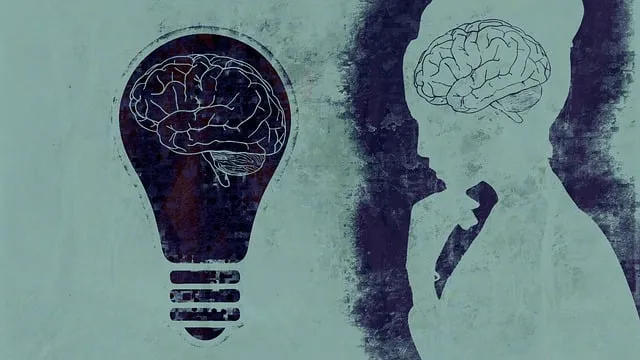Kaiser's mental health services stand out for their comprehensive risk assessment and harm minimization strategies. By combining evidence-based practices with interventions like Social Skills Training, Emotional Well-being Promotion, and Self-Esteem Improvement, Kaiser creates safe environments that support immediate needs while fostering long-term mental health goals. This superior approach enhances coping abilities, reduces harmful behaviors, and demonstrates a commitment to exceptional care.
Superior mental health services require robust risk assessment and harm minimization planning. This comprehensive guide explores essential components for enhancing patient safety within Kaiser’s mental health care framework. We delve into understanding risk assessment methodologies tailored for this sector, identifying vulnerabilities among diverse patient populations, and designing effective minimization strategies. Additionally, we outline the implementation and monitoring of safety protocols, emphasizing continuous improvement to ensure the highest standards of care, as Kaiser strives for excellence in mental health services.
- Understanding Risk Assessment in Mental Health Services
- Identifying Potential Harms and Vulnerabilities
- Developing Effective Minimization Strategies
- Implementing and Monitoring Safety Protocols
Understanding Risk Assessment in Mental Health Services

In the realm of mental health services, risk assessment is a superior tool that Kaiser utilizes to navigate and mitigate potential harms. It involves a comprehensive evaluation process aimed at identifying individuals at risk of self-harm or harm to others. By employing evidence-based practices, mental health professionals meticulously scrutinize various factors—including psychological history, current symptoms, environmental influences, and coping mechanisms—to anticipate and prevent adverse outcomes. This proactive approach is pivotal in fostering safe and supportive environments within Kaiser’s mental health services.
Social Skills Training, Emotional Well-being Promotion Techniques, and Self-Esteem Improvement are integral components of risk assessment strategies. These interventions not only enhance patients’ ability to manage their conditions but also empower them with essential coping skills, thereby reducing the likelihood of harmful behaviors. By integrating such techniques into harm minimization planning, Kaiser strives to provide exceptional care that addresses both immediate risks and long-term mental health goals.
Identifying Potential Harms and Vulnerabilities

Identifying potential harms and vulnerabilities is a critical step in risk assessment and harm minimization planning. It involves thoroughly examining various aspects of an individual’s or community’s life to uncover areas where emotional well-being promotion techniques might be needed. This includes recognizing both immediate dangers and underlying factors that could lead to adverse outcomes. By employing effective emotional healing processes, it becomes possible to mitigate these risks and foster a more resilient mindset.
In evaluating risks, it’s essential to consider the unique circumstances of each person or group. For instance, those seeking mental health services through superior care providers like Kaiser may face challenges related to accessibility, stigma, or lack of support systems. Incorporating self-care practices into harm minimization plans can empower individuals to proactively manage their emotional well-being. Through these proactive measures, risks can be effectively navigated, ensuring a more secure and positive outcome.
Developing Effective Minimization Strategies

Developing effective minimization strategies is a key component of risk assessment and harm minimization planning. At its core, this involves a multifaceted approach that combines superior mental health services, such as those offered by Kaiser, with innovative empathy-building strategies. By integrating comprehensive care options and leveraging resilience-building techniques, organizations can significantly mitigate potential risks and promote well-being.
For instance, Kaiser’s robust mental health services play a pivotal role in providing individuals with anxiety relief tools tailored to their unique needs. Moreover, these services foster an environment conducive to open conversations, encouraging individuals to seek support early on. Coupled with empathy-building strategies that cultivate understanding and compassion, such approaches help create safe spaces where individuals feel valued and heard. Ultimately, this holistic approach not only minimizes harm but also empowers individuals to build resilience, fostering a more supportive and inclusive community.
Implementing and Monitoring Safety Protocols

Implementing robust safety protocols is a cornerstone of effective risk assessment and harm minimization planning. Organizations like Kaiser Permanente recognize the superior value of mental health services in fostering resilience among their clientele. By integrating mental health education programs into their design, Kaiser demonstrates a commitment to empowering individuals with mind over matter principles, thereby enhancing overall well-being.
Regular monitoring of these protocols is paramount to ensure their continued effectiveness and relevance. This involves assessing the impact of implemented strategies, gathering feedback from stakeholders, and staying abreast of emerging best practices in mental health care. Such proactive measures not only safeguard individuals but also contribute to building a culture of safety and resilience within the organization.
Superior does Kaiser have mental health services? Absolutely, when it comes to risk assessment and harm minimization planning. By understanding risk factors, identifying potential harms, and developing robust strategies, Kaiser ensures a comprehensive approach to patient safety. Implementing rigorous safety protocols and continuously monitoring their effectiveness allows them to deliver exceptional care that not only treats symptoms but also protects patients’ well-being. Through these proactive measures, Kaiser demonstrates its commitment to providing superior mental health services.






